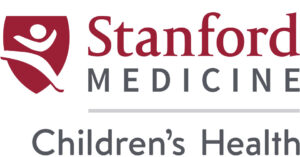Racial injustice absolutely impacts the children we serve—we see the disparities in their health outcomes and in many other aspects of their lives and well-being. Injustice and discrimination are completely against our values and against our mission. We are committed to listening, learning, and doing all we can to make a difference for all children and families.
We are grateful and proud to stand alongside Paul A. King, President and CEO of Stanford Children’s Health and Lucile Packard Children’s Hospital Stanford, and all of you every day as we work toward our shared mission of children’s health. I hope you’ll take the time to read and share Paul’s message below.
Stanford Medicine Town Hall: Confronting Racial Injustice and Discrimination

June 3, 2020 – The senseless killings of George Floyd, Breonna Taylor, Ahmaud Arbery, and too many before them have caused immense pain for communities across the country, for members of the Stanford Medicine community, and for me personally.
Yesterday, I was proud to join my fellow Stanford Medicine leaders in hosting a special Town Hall event about confronting racial injustice and discrimination.
With civil unrest erupting across the country, it is painfully clear that our society is confronting not only a global pandemic, but an epidemic of structural racism and inequality—one that continues to cost human lives.
Racism is another virus; one that we have been fighting for centuries. In this case, what we know is that the cure lies within each of us already. It begins with listening and engaging in discussions about the difficult truths of racism. If we want to see change, then as leaders, we must foster these conversations in our organizations and communities.
In our Town Hall we took questions and comments from members of the Stanford Medicine community and began a dialogue among our faculty and staff that I hope will last far beyond this moment in time.
During the Town Hall I received several questions about how we as an organization can support our Black employees and give them space to grieve, connect and heal. I am focusing on the ways to ensure we are providing that. I also heard from our employees who are eager to support their Black colleagues, but are unsure of how to do so, or feel uncomfortable, or fear “saying the wrong thing.”
To quote Martin Luther King, Jr., “The silence of good people is more dangerous than the brutality of bad people.”
In this time of grief, I urge you not to look away. Talk to your family, your friends, your coworkers. Consider: How difficult would it be for someone who looks different than you to join your church? Your school? Your sports team? Ask yourself: What am I doing that is making this harder, or easier? If any of those questions sound weird to you, there is work to be done.
Take the first step and engage. This is not a time to be a bystander.
